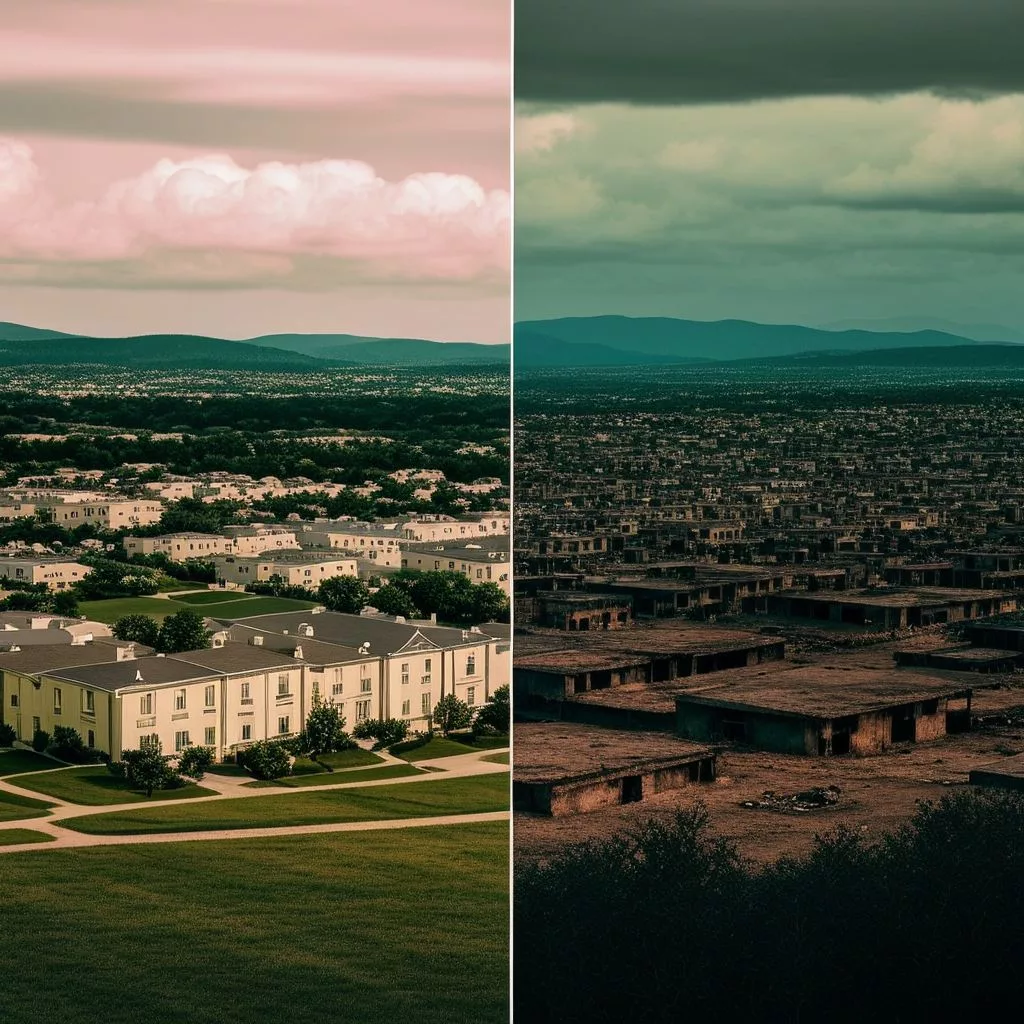At Zanemfundo Primary School in Phillipi East, teachers are living in fear as armed men demand protection fees, halting classes and sending educators into hiding. The terrifying events of February 28th have left the community shaken, with many teachers too scared to return to work. Despite police efforts and private security being called in, the threat of violence looms large, forcing teachers to seek safer environments. This crisis highlights the deep-rooted issues of crime and poverty that plague the community, showing how the safety of education is at risk in these troubled times.
What is the crisis at Zanemfundo Primary School?
The crisis at Zanemfundo Primary School involves armed men extorting teachers for protection fees, creating a climate of fear that led to class cancellations. Despite police involvement and increased security measures, educators remain threatened, impacting their ability to teach and the community’s overall safety.
The disturbing events that unfolded at Zanemfundo Primary School in Phillipi East this past February have left an indelible mark on the community. These incidents serve as a grim reminder of the complex relationship between education and crime. Armed men invaded the school, demanding protection fees from teachers, a stark illustration of the perils that educators face in high-crime areas. Despite having reported the incident to the South African Police Service (SAPS), the investigation has yet to yield any significant results, leaving the community in a state of perpetual fear.
February 28th: A Day of Terror
February 28th was a day that Zanemfundo Primary School will not soon forget. Armed men stormed the school and coerced teachers to pay 10% of their salaries as protection fees. The immediate impact was profound, with teachers fleeing to the Education Department’s district offices in Mitchells Plain, too terrified to return to their classrooms. This flight to safety led to the cancellation of classes, highlighting the intense fear that now permeates the lives of those tasked with educating the community’s children.
One teacher confided in GroundUp, recounting the harrowing reality that the assailants are well-known within the community. Despite this knowledge, no arrests have been made, exacerbating the sense of insecurity. This teacher, echoing a sentiment shared by many of his colleagues, has vowed not to return to work until his safety can be assured. As a temporary measure, police officers now escort teachers to the school—a solution that underscores the severity of the situation more than it alleviates it.
Seeking Safety, Finding Fear
The Western Cape Education Department has intervened by deploying a private security firm to bolster the school’s security. Additionally, SAPS has increased patrols in the area. However, these measures provide little comfort to the teachers. “It is not safe at all. We are in extreme danger,” one teacher lamented, capturing the ongoing risks posed by armed gangs.
The situation at Zanemfundo Primary School is not an isolated incident. Similar threats have been reported at five other schools in Nyanga, Philippi, and Samora Machel. These recurring incidents point to a widespread issue within these communities, where crime and education intersect in troubling ways. Many teachers at these schools are now seeking transfers, unwilling to continue working in such dangerous conditions.
When pressed for comments on these incidents, Western Cape Education Department spokesperson Bronagh Hammond deferred to SAPS. This bureaucratic handoff adds another layer of complexity, often hindering swift action. SAPS spokesperson Colonel Andrè Traut confirmed the reports of extortion but cited security concerns for withholding further details.
Historical Context: The Legacy of Violence
To fully understand the current crisis, one must consider the historical and socio-economic factors that have shaped these communities. The legacy of apartheid, with its enforced spatial segregation and economic marginalization, created environments where crime could thrive. While the transition to democracy was a monumental step forward, it did not immediately rectify these deep-seated inequalities. Consequently, crime and violence have remained persistent issues in many South African townships.
The culture of fear instilled by these criminal activities has a profound impact on the educational environment. Teachers, who are the backbone of any educational system, find themselves distracted and demoralized. Instead of focusing on educating and nurturing their students, they are preoccupied with their own safety. This is a disturbing parallel to the broader global struggle where educators in conflict zones face similar perils. The universal right to education, enshrined in numerous international conventions, is compromised in places like Phillipi East. Addressing this right requires tackling not just educational policies but also the broader social and economic issues that drive crime.
Reflections from Other Contexts
Looking at other historical and cultural movements can offer valuable insights into the current crisis. For example, the Harlem Renaissance in the United States was not merely a cultural awakening but also a response to systemic oppression. Artists and intellectuals used their platforms to challenge and highlight societal issues. Similarly, the struggles faced by teachers at Zanemfundo Primary School reflect the resilience and resistance found within marginalized communities.
Addressing the crisis at Zanemfundo Primary School requires a multi-layered approach. Policymakers must prioritize security within educational institutions, recognizing their unique vulnerabilities. Community involvement is equally crucial. Empowering local leaders and fostering a culture of cooperation between residents and law enforcement can create a more secure environment.
The Way Forward: Community and Policy Interventions
The South African government must address the root causes of crime, such as poverty and unemployment. Sustainable development initiatives, coupled with effective law enforcement, can help dismantle the structures that perpetuate violence. Reflecting on personal experiences can also provide valuable context. Having worked in a community similarly affected by violence, I recall the palpable fear but also the resilience. Teachers continued to show up, driven by their commitment to education and their students’ futures. This spirit of dedication, despite the odds, is mirrored in the courage of the teachers at Zanemfundo Primary School.
Their plight serves as a stark reminder of the broader societal obligations to ensure safety and security within educational spaces. The crisis at Zanemfundo Primary School is a microcosm of larger societal issues, highlighting the intersection between education and security. Addressing this crisis requires immediate action, long-term strategies, and a collective commitment to creating safe educational environments across South Africa. The resilience of the teachers and community support will be pivotal in navigating this challenging landscape, ensuring that education remains a beacon of hope and progress.
“`markdown
FAQ
What happened at Zanemfundo Primary School on February 28th?
On February 28th, armed men stormed Zanemfundo Primary School in Phillipi East, demanding protection fees from teachers amounting to 10% of their salaries. This incident caused widespread fear among educators, leading many to flee to the Education Department’s district offices and resulting in canceled classes.
How have teachers responded to the crisis?
In response to the threats, many teachers are too scared to return to work, with some seeking transfers to safer environments. Police escorts have been provided to teachers, but the measure is viewed as inadequate in addressing the underlying issues of safety.
What actions have been taken by authorities to address the situation?
The Western Cape Education Department has deployed a private security firm to enhance the school’s security, and the South African Police Service (SAPS) has increased patrols in the area. However, these actions have not significantly alleviated the teachers’ fears.
Why is the current crisis at Zanemfundo Primary School significant?
The crisis is significant as it highlights the intersection of crime, poverty, and education in South Africa. It underscores the dangers educators face in high-crime areas and points to a broader societal issue where the safety of education is jeopardized.
Are similar incidents occurring in other schools?
Yes, similar threats have been reported at five other schools in nearby areas, including Nyanga, Phillips, and Samora Machel. This indicates a widespread issue affecting educational institutions in these communities.
What broader factors contribute to this crisis?
The crisis is rooted in historical and socio-economic issues, particularly those arising from the legacy of apartheid, which has resulted in persistent crime and economic disparities. Addressing the crisis requires tackling these underlying factors, alongside prioritizing security in educational spaces.
“`












